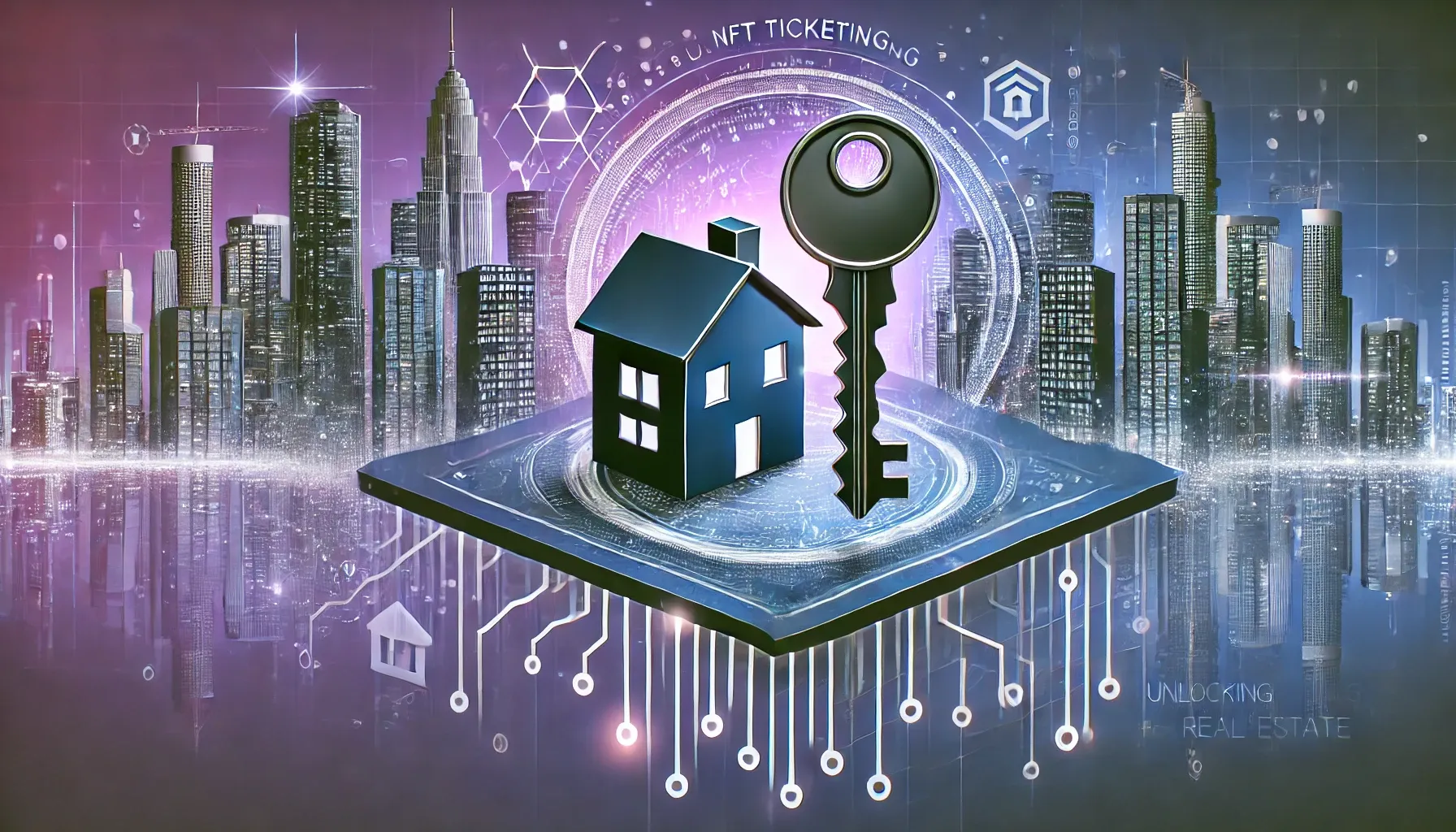
Real Estate + NFT Ticketing: Opening Doors for Real Estate Deals
Real estate is one of the major industries that stands to gain from the use of NFT technology, which has created new opportunities in a number of other industries. Currently a mainstay of events, NFT ticketing can also be used as a safe, open, and effective way to control property ownership and access. This change can provide security, transaction ease, and even new sources of income for real estate companies.
Improved protection against fraud
Because blockchain-backed NFT ticketing systems are secure, every real estate transaction is documented and readily traceable. Preventing fraud and maintaining unambiguous ownership records are essential in areas where property fraud or contested land titles are prevalent in the real estate market.
How it operates? NFTs can offer exclusive access to properties or serve as a representation of real estate asset ownership. An NFT may be given to the new owner or renter upon purchasing or leasing a property, guaranteeing their rights are confirmed. This procedure reduces the dangers of identity theft and falsified documents.
NFT ticketing's advantages in real estate transactions
- Transaction records that cannot be changed. Blockchain makes sure that every modification is recorded.
- Transfer of ownership instantaneous. Waiting for manual paperwork is eliminated.
- The removal of middlemen. direct exchanges between the buyer and the seller.
- Fractional ownership that is tokenized. Use NFTs to purchase a portion of a vehicle.
- Rental agreements with smart contracts. Access, payments, and renewals are all automated.
- Accessible worldwide. potential for overseas purchasers without regional restrictions.
- Streamlined title search. The blockchain transparently stores ownership history.
- Secure access to the property. systems that use tokens to restrict physical access to properties.
- Effective contract implementation. Self-executing contracts guarantee on-time commitments.
- Security of data. An encryption system protects all sensitive data.
Real-World Example: Using NFTs in Property Sales
A well-known Florida real estate transaction serves as a real-world illustration of NFT ticketing. A four-bedroom home was offered for sale as an NFT on a blockchain real estate platform in 2022. In order to streamline the traditional property transaction process, which would have taken weeks or months using traditional methods, the NFT represented ownership rights to the property. The entire transaction—including the ownership transfer—took place in a few hours, demonstrating how NFT ticketing can expedite and improve the efficiency of real estate transactions.
Because the buyer in this instance received a property deed encoded in the NFT, the transaction was quick, easy, and safe. Additionally, this transaction demonstrated how foreign buyers could engage in local real estate markets without the assistance of notaries, lawyers, or traditional real estate brokers.
Access to Token-Gated Properties
Token-gated access systems and NFT ticketing can be combined to control property access for service providers, new owners, and renters. By limiting access to designated areas of a building with NFTs, security risks are decreased because only authorized individuals are allowed entry.
To grant tenants access to office spaces or facilities like meeting rooms and gyms, for instance, a commercial building owner could utilize NFT ticketing to assign access tokens to tenants. By updating automatically when leases expire or new tenants move in, this system would ensure smooth access control and save time on manual key exchanges.
Advantages for real estate investors in terms of money
In the real estate industry, NFT ticketing can open up new financial models. For example, investors can own portions of a property represented by NFTs through fractional ownership. By enabling investors to purchase and sell these tokens, an asset class that has historically lacked liquidity gains liquidity.
Smart contracts may also be able to automate rental payments, which would lower management expenses and guarantee that landlords get paid on schedule without the need for outside assistance. By doing this, disagreements are reduced and both landlords and tenants have a smooth experience.
These are the main financial benefits for real estate investors
- Increased liquidity. Property ownership that is fractionalized can be exchanged.
- Rent is collected automatically. Recurring payment processing is done by smart contracts.
- Lower transaction costs. Remove notary, attorney, and broker fees.
- Participation of international investors. Reach a larger group of prospective customers.
- Adaptable property care. NFTs allow for a smooth onboarding and offboarding of tenants.
- ROI is faster. Faster access to capital results from faster transactions.
- Better rental compliance:. Tenant responsibilities are fulfilled thanks to smart contracts.
- Participation in the market that is dynamic. It is easy for investors to come and go.
- Transparency improved. Comprehensive records of ownership and transactions for everyone.
- Reduce the risk of fraud. The legitimacy of ownership is guaranteed by blockchain-backed NFTs.
Insights and possibilities for the future
NFT use in real estate is no longer merely a theoretical idea. NFT ticketing will probably be incorporated into real estate transactions more frequently in the upcoming years as smart cities are developed and the real estate sector grows more digital. Blockchain-based real estate sales are currently being tested in cities like Miami and Dubai, and it won't be long before NFTs are widely used to manage access and transfer ownership of both residential and commercial properties.
The way that NFTs streamline conventionally difficult real estate procedures is among the most important insights. They can be utilized for leasing, subleasing, and even obtaining short-term rentals like Airbnbs in addition to sales. Adopting this technology could benefit businesses by lowering overhead expenses, improving cash flow management, and giving them access to a wider range of international customers.
Finally, for both property owners and investors, NFT ticketing in real estate provides unmatched security, efficiency, and new financial opportunities. The real estate market is expected to see increased accessibility, reduced fraud risks, and quicker transactions as companies start implementing this technology.